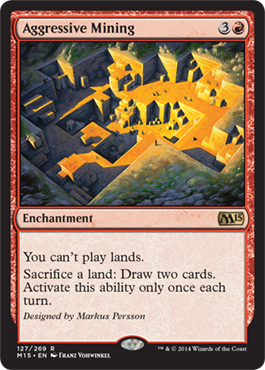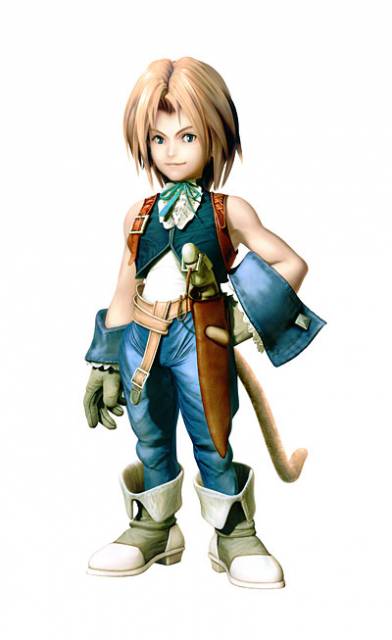ThatPinguino + The Concepts
By thatpinguino 4 Comments
After reading Mento’s blog about some of his favorite game mechanics I thought I would write a blog highlighting some of my own. These are not in any particular order of favor-ocity.
1. Using Fighting Game Style Combos for RPG Input- One of the most pressing problems facing jrpgs today is the fact that a lot of people just don’t like menu driven combat. Hitting attack or magic and then waiting for a few seconds to watch an animation is not that compelling to some people. A lot of games try to solve this problem by either going as action-game-y as possible (Eternal Sonata and the FFXIII series are good examples of this route) or by adding some light QTEs to the attack animations (Costume Quest and Paper Mario are two examples). However, one option that I think has worked in the past and can work again is actually tying character actions to complex controller inputs, rather than a menu. Sabin in FF6 uses this sort of mechanic for his special attack. As you unlocked moves for Sabin, you have to manually input a series of movements on the d-pad and face buttons to actually perform your special attacks. Zell uses the same mechanic for his limit breaks in FF8 and Legend of Legaia uses this concept for almost its entire combat system. I especially like the Legaia and FF8 examples because those games don’t gate your ability to perform attacks beyond your ability to perform the right inputs at the right time. As a result, you can use Zell’s best limit break in his first fight if you know how. Thus, “unlocking” new skills in those games is really a matter of the game teaching you how to perform a move, rather than just unlocking an option on a menu. On top of simply adding skill to the basic gameplay of an RPG, fighting game inputs reward expertise with an expanded move set and additional options.

2. Resource Swapping- I love when games allow you to exchange multiple types of resources back and forth in a non-linear way. FF8’s junction system is the best RPG example because every item in that game can be refined into another item or into magic. In Magic the Gathering my favorite cards allow for the exchange of one card type for another. For example, the recently printed Aggressive Mining (thanks Notch) lets you sacrifice lands to draw cards. These forms of resource swapping allow savvy players to get the most out of the resources they have, rather than force them to simply acquire a different type of resource. This helps mitigate some problems like scouring the world for a random drop or performing several quests for one specific item. If you can get an item multiple ways, then you don’t have to bang your head against one way until you succeed. Furthermore, these systems create relationships between items that are not present in other games. In FF8 every item is valuable beyond its usable effect and that allows FF8 to keep almost all of its items relevant for the entirety of the game. Taking the time to build one of these systems adds depth to all items and makes collecting items a game in and of itself.
3. Save Anywhere- This mechanic is invaluable in RPGs and thanks to Western franchises like Elder Scrolls it seems to be the new norm. There was nothing worse as a child than being halfway through a dungeon in FF7 and then being told that I had to leave to go to a family gathering or a grandparent’s house because that meant either losing an hour of progress or pissing off everyone, it usually meant both. Thank goodness for the save anywhere, anytime nature of Skyrim and Bioshock. I don’t know why all games don’t adopt this policy, but respecting your player’s time and schedule is a really important game design concept in the modern day. Though I miss the tension that savepoints introduced, I will never miss redoing an entire level because I happened to get wiped out by a random Lvl5 death or something.

4. Interchangeable Job Systems- I like the core idea of RPG classes and defining character abilities according to class, but for me the real fun comes when you start blending classes and blurring the lines between them. FF5, Penny Arcade Adventures 3, and Lost Odyssey all showcase the fun of blending classes. In FF5 your characters permanently learn abilities from the classes they equip and they can equip a single learned ability regardless of what class they are at the moment. This lead to all sorts of fun like dual wielding swords as a knight or casting time magic as a summoner or unleashing monsters as a blue mage. In PA3 every character has a base class, but they can equip up to two additional classes that can completely change the way they play. In Lost Odyssey your immortal characters learn new abilities from the mortal characters they travel with. This leads to your immortal characters becoming a walking amalgam of mortal abilities in an immortal body. I think I love this mixing and matching for the same reason people love putting buttons on backpacks and stickers on notebooks: I love customizing and making my stuff feel unique. When you are playing a game that just allows you a few base classes the level of uniqueness is pretty low. Yet, once you open up cross-pollination of classes the number of possible combinations opens way up.

5. Personality Driven Skills- Very few games do this, but man do I love it when gameplay mechanics are used for characterization purposes. The clearest example of this concept is Zidane’s ability Protect Girls in FF9. Zidane is a thief by trade and almost all of his abilities play into the traditional thief character class that has carried forward since D&D first came out. He steals, he flees, and he mugs. However, Zidane also has a passive ability that he can learn at the very start of the game: Protect Girls. This ability allows Zidane to take damage in place of a female character, exactly like a knight using Cover. This little, oft forgotten passive ability does a whole lot of character work. By having Protect Girls, Zidane shows that he is chivalrous and that he is more than just a flirt. Zidane shows a little bit about how he views himself simply by having the option of using the Protect Girls ability, an ability that is entirely unique to him. Characters in RPG are too often entirely defined by their class, from ability to personality. It is always interesting when developers allow their characters to shine through their mechanics rather than forcing their characters to conform to their class.
There are my 5 favorite gameplay concepts. Lets see some more GB answers to this hot discussion!
